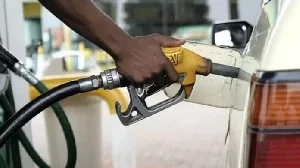The NPA warns motorists against overfilling their gasoline tanks.

The National Petroleum Administration (NPA) has cautioned petroleum retailers and motorists against using ramps to assist with fueling vehicles.
It was stated that tilting vehicles on ramps to fill them to capacity could damage gasoline tanks and cause explosions, vehicle destruction, and loss of life.
David Owusu-Kena, the Eastern Regional Manager, issued the warning at an NPA media event in Koforidua.
The Communications Department organized the media engagement to highlight the Authority’s activities in the petroleum downstream industry and to respond to queries pertaining to the industry.
Mr. Owusu-Kena stated that fuel tanks should not be loaded to capacity because fuel requires expansion space.
According to him, fully-filled fuel tanks leak fuel onto the vehicle and the forecourt of gas stations, which can ignite a fire.
In addition, he stated that the expanded fuel could damage the fuel gauge and seep through old tanks into the exhaust pipe, which could spark a fire, cause the vehicle to catch fire, and result in injuries and deaths.
Before the NPA grants a permit for the construction of a petroleum station, Mr. Owusu-Kena stated that prospective applicants must obtain permits from the Environmental Protection Agency (EP), the Ghana National Fire and Rescue Service (GNFRS), and the assembly.
He stated that the authority ensured that the application received all necessary approvals from the EPA, the GNFRS, and the assembly in order to safeguard residents and the environment.
Dominic Aboagye, the NPA’s Head of Planning, then described the measures the authority had put in place to ensure the uninterrupted availability and supply of petroleum in the country.
The interventions include the administration of storage depots, the laycan allocation program, and the monitoring and reporting of stock levels.
In addition, he stated that the Gold for Oil program, the Bank of Ghana’s forex support for Bulk Oil Distribution Companies, and the issuance of a Special International Oil Trading License were crucial in preventing any danger of a disruption in fuel supply.
Mr. Aboagye stated that local crude oil refining by Akwaaba Oil Refinery and Platon Gas Oil Refinery was bolstering the sector.
He stated that local petroleum refineries would be ramped up as the Tema Oil Refinery (TOR) begins operations and the Sentuo refinery is completed.
The Corporate Affairs Director, Maria Edith Oquaye, welcomed the media on behalf of the NPA Chief Executive, Dr. Mustapha Abdul-Hamid, and stated that last year’s media engagements across the country focused on pricing and quality of petroleum products, and that this year’s sensitization would focus on requirements for siting filling stations and security of supply of petroleum products.
Kwami Sefa Kayi, a member of the Governing Board of the NPA and chairman of the Consumer Services subcommittee, praised the NPA for its sensitization campaign and urged the media to be more proactive by asking the NPA industry-related queries for clarification.
